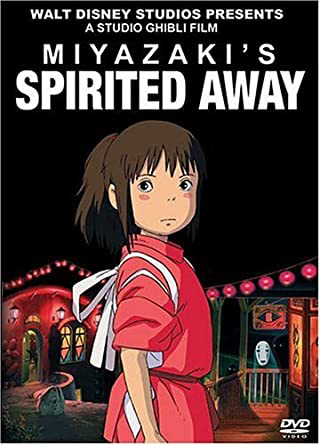
October 26, 2023
In your Scooby Doo PJ's, you make your way down to the kitchen to pour yourself a bowl of cereal (Rice Krispies, please). You take your cereal sit in front of the tv for a magical morning of cartoons.
“Flintstones, Meet the Flintstones. They’re the modern Stone Age family.
From the town of Bedrock, they’re a page right out of history.”
Admit it, you sang it, right?
If you were lucky to grow up during the 60s, 70s, 80s, or 90s, Saturday morning cartoons were a part of your childhood. During those few short hours, thoughts of school, chores, homework, and boredom faded, and attention to adventure and excitement took over.
This societal experience no longer exists today, replaced with niche cable channels, streaming, and personalization through online media. Here’s a quick look at the history of Saturday morning television.
1960s
The flower power decade produced pioneering changes in animation techniques. This classic era of cartoons would set the stage for future animated series.
The Flintstones
According to the TV Guide, The Flintstones is ranked as the second greatest cartoon of all time. (Behind The Simpsons.) The Flintstones was Prime Time TV’s first animated series. It seemed improbable that a cartoon during prime time would attract adults, wrong! The popularity of the show clearly showed universal appeal that transcended age.
To deal with production demand, Bugs Bunny cartoons were divided between numerous animators, each lending their talents to the evolution of the infamous rabbit. Though the viewer wouldn’t necessarily notice, there were slight differences in their animated looks!
Seven months after astronaut John Glenn orbited the earth, the space-age Jetson family blasted onto TV. It was the first series to be broadcast in color for the ABC network.
Saturday Morning Cartoons V.1 / Saturday Morning Cartoons V.2
A selection of cartoons from the 60s that are perfect for viewing on a Saturday morning!
1970s
The seventies were dominated by Hanna-Barbera cartoons. This era saw a rise in musical-style productions and series focused on education and social behaviors.
First envisioned as a group of mystery crime-fighting friends who happened to have a dog, the series had a more serious theme. Deemed ‘too frightening’ for children, the beloved Great Dane became the comic relief! Roh-roh-Raggy!
Headquartered inside the Hall of Justice, caped crusades came together to fight injustice. Recognizable heroes were joined by newly created characters, including ethnically diverse heroes such as ‘El Dorado,’ a Hispanic hero believed to be a descendant of Aztec sorcerers with the ability to cast illusions and teleport.
Saturday Morning Cartoons V. 1 / Saturday Morning Cartoons V.2
A selection of cartoons from the 70s that are perfect for viewing on a Saturday morning!
1980s
This era brought a vast array of imaginative cartoons to the small screen, many of which were based on popular toys. Cartoons evolved into complex storytelling and richly defined characters.
Beginning life as a comic strip, the Smurfs dominated TV from 1981-1989, with a whopping 256 episodes. It became NBC’s massive hit, a morning equivalent of The Cosby Show in prime time.
He-Man and the Masters of the Universe
He-Man was first an action figure before becoming a syndicated show. It was, in its early days, vilified by parent groups for featuring hyper-muscular figures but soon laid way for acceptance with its positive social messaging and moral tones.
With restrictions being lifted on advertising around children's programming, Hasbro acquired the franchising rights from a Japanese entertainment company and rebranded it to ‘Transformers.’
Disney’s Adventures of the Gummi Bears
The Gummi Bears began as a Candyland-style show and reenvisaged into a medieval-themed series, deep with mythological tones, which was inspired by the works of J.R.R. Tolkien.
Though written, produced, and voiced acted in the US, the stunning illustrations were created by a Japanese animation corporation. A distinct Japanese style and one-of-a-kind cartoon delight!
TV Guides Totally 80s Toons Cartoon collection from the 80s.
1990s
Cartoon subjects became more adult-like, taking a darker self-conscious look in content.
Teenage Mutant Ninja Turtles
“Cowabunga, dude!” Fresh out of art school, Peter Laird and Kevin Easton teamed up to create a young-adult-based comic. Successful packaging led comic readers to relook at this unique comic, which helped spearhead it to cult status.
Pinky and the Brain First introduced in The Animaniacs, the rodent duo got their own series that ran from 1995-1998 (65 Episodes). Escaping a research lab, genetically spliced, the two rats escape to an unnamed city, where Brain has one thing on his mind–world domination!
This blog was inspired by It’s Saturday Morning! Celebrating the Golden Era of Cartoons: 1960s-1990s by Joe Garner.
What cartoons do you remember?
Lisa P.
Reader Services
Read Similar Blogs:
Books and Reading
Entertainment
Videos







